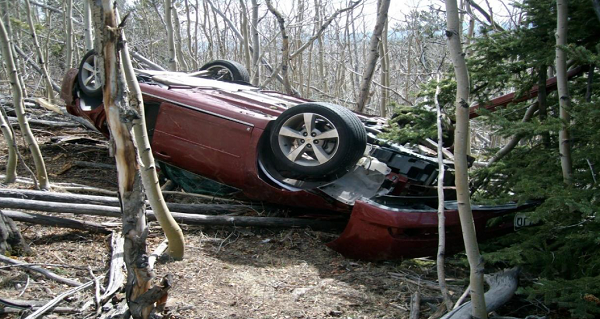Can Being Tired Kill You? Lack Of Sleep Increases Car Crash Rate For Drivers

Getting behind the wheel while sleepy can have just as fatal of an effect as driving while under the influence of alcohol. In fact, a study by the AAA Foundation for Traffic Safety said people who only sleep five or six hours within a 24-hour time period were two times more likely to be involved in an auto accident than drivers who sleep for seven hours or more.
The report, which was released Tuesday, reviewed data from the National Highway Traffic Safety Administration (NHTSA) and found the odds of crashing increased with the less amount of sleep a person got each night. Based on the data, which was recorded from police-reported crashes that involved at least one towed vehicle and/or a need for emergency medical services, researchers determined drivers who only received four to five hours of sleep were four times more likely to be involved in an accident, similar to the crash rate of drunk driving.
In 2015, fatal auto accidents increased by eight percent, resulting in the deaths of approximately 38,300 people, according to a National Safety Council (NSC) report.
The spike in automobile-related deaths was the biggest jump in car accidents in the last 50 years, NSC President and CEO Deborah A.P. Hersman told Newsweek. Although previous NSC research indicated that alcohol, distracted driving and speed were the three biggest causes of car crashes, a separate report by NHTSA said that driving while sleepy accounted for about 20 percent of the crash rate in 2015. Crashes caused by drunk driving make up about 31 percent of the crash rate, according to Centers for Disease Control data.
Drivers who have not slept for seven or more hours in a 24-hour timeframe should refrain from driving altogether, AAA Traffic and Safety Advocacy & Research Director Jake Nelson told NPR. He recommended drivers stop and take a nap when they have to drive but are feeling fatigued.
“Taking a 10 to 20-minute nap every couple of hours on a long drive has huge safety benefits in terms of your ability to drive without crashing,” he said, adding that catching up on lost sleep can go a long way no matter what time of the day or night it is. “As long as you get seven to eight hours of sleep within a 24-hour period before you get behind the wheel of a car you’re ok.”
© Copyright IBTimes 2024. All rights reserved.






















